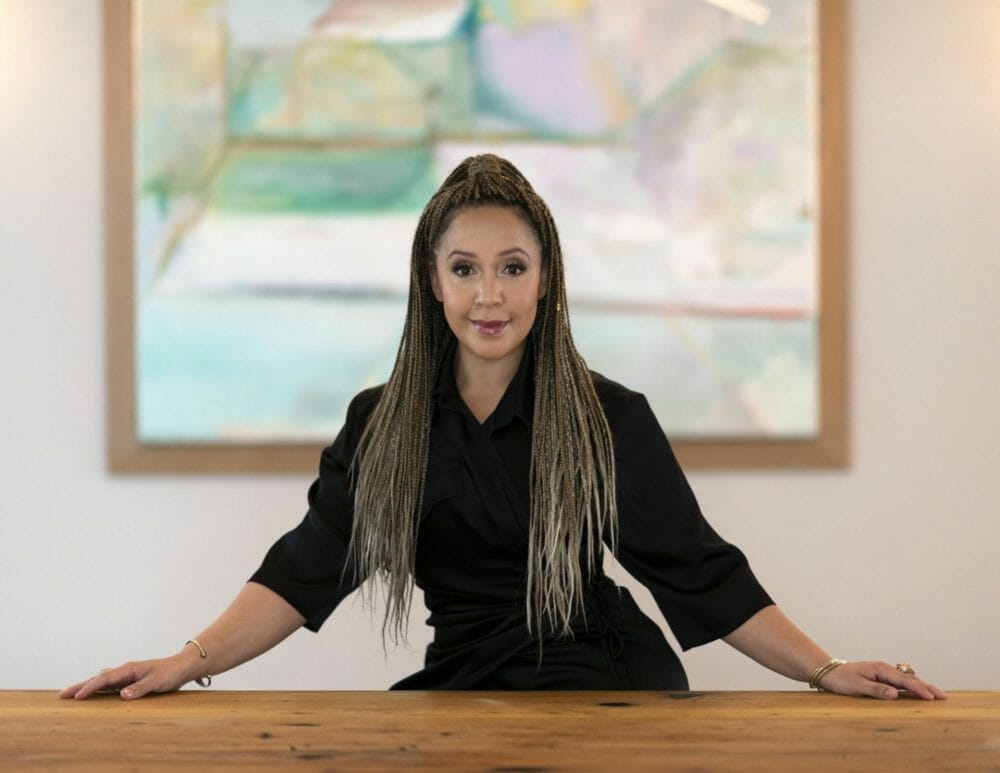Countless consumer goods companies are reeling from the impact of Covid-19, as shelter-in-place orders deter customers, supply chains buckle, and workers are sent home or laid off. Companies are being forced to radically rethink strategies that worked in normal times.
For Planet FWD founder Julia Collins, the hope is that corporations’ collective strategic recounting will put sustainability, and climate change specifically, in the spotlight.
“One of the things that is challenging about climate change is to make such a big existential threat feel credible or proximate. Something as huge as climate change can feel so far out of reach,” Collins tells AFN. “But for the first time in my lifetime, we are living in the middle of an existential threat, and as human beings, we right now we have a visceral, physical understanding of what it means to be fighting an existential threat.”
Collins founded San Francisco-based Planet FWD to address two emerging consumer trends in the food sector: a growing interest in climate-friendly food products, and concern for farmland health and the farm owners and workers stewarding it. These themes are manifested though a branded snack line and an ingredients sourcing platform.
Investors, including BBG Ventures, Cleo Capital, Maveron, Kapor Capital, Incite Ventures, Precursor Ventures, Cowboy Ventures, Jane VC, and F7 Ventures, recently invested $2.7 million in seed funding to help Planet FWD expand its mission and reach.
Personal realization
The idea for Planet FWD came to Collins through her own personal awakening around the food system’s climate impact.
“In 2017, I became a parent and the whole conversation around climate change came into a narrow focus for me as I thought about what all the discussion meant not through my own eyes, but through the eyes of the little person for whom I am now responsible,” she says. “I had a dream of a climate-friendly food company inspired by what I could create for my son.”
At the time, Collins, was consumed in her work with pizza chain Zume Pizza, which she co-founded. She left the company in 2018 to work on her idea for Planet FWD.
(Zume, which cut 360 jobs and shuttered its robotic pizza-making delivery service in January, is also pivoting to sustainability-centered model: the company is focusing on manufacturing its compostable molded-fiber packaging while growing its food production and delivery services.)
Planet FWD’s products are still very much in the development stage, but when they launch, the consumer-facing side will be a branded line of “climate-friendly” snacks, with ingredients sourced from regenerative growing sources. The company has identified five sourcing guidelines: reduced or minimal tillage, cover cropping, livestock integration, roots in the ground year-round, and maximizing biodiversity.
Collins says supplies won’t have to tick all five boxes; rather, the criteria are meant to encompass “the landscape at large.” There is no one-size-fits-all approach to farming throughout the world, she adds.
On the back-end, Planet FWD is building a platform that paints a comprehensive picture of the US regenerative agriculture landscape for other companies and product developers to use. If another party wants to identify sources of wheat and the practices used to grow it, for example, Planet FWD wants to be able to provide the answer.
The term “regenerative” is relatively new in the world of agriculture, and there is still much debate about what it encompasses, and if and how it can be measured. Planet FWD uses a broad and inclusive definition, rather than trying to devise its own set of rules.
“That’s not an area where I intend to add value,” explains Collins. Instead, the company explains the range of practices out there and what they mean, practically, so that its platform users can make informed decisions. “We aren’t creating a certification or definition. What we are doing is providing additional transparency about practices and how they result in better outcomes.”
The company is currently working on a series of listening sessions with farmers to learn more about their regenerative practices and to boost public awareness of farmers’ role as land stewards.
A pandemic-shaped wrench in the wheel
Planet FWD, amid plans to roll out a branded product line, will have to grapple with the same set of strategic and operational challenges that other consumer goods companies are facing during the COVID pandemic.
What’s more, premium food products made with ingredients using progressive practices are often pricier than conventional, mainstream foods. That could impose some short-term challenges in attracting customers, as millions of Americans are seeing jobs and wages disappear, or are turning to comfort food while they are forced to stay at home.
“The way that we connect with consumers and producers will certainly change in light of this new reality that we are all facing,” Collins admits. “Our mission remains unchanged: tackle climate change, while shining a light on beneficial farming practices that drawdown carbon and improve soil health.”
One immediate bright spot: non-perishable are witnessing an uptick in sales, as people stock their pantries.
“I am very optimistic about the ability of the US food system to weather this storm. We remain in a country with an agricultural surplus and robust food supply,” in spite of supply chain “bottlenecks” and other issues, Collins says. “There are other areas where this is not the case and my heart goes out to the ones disproportionally affected by the virus.”





